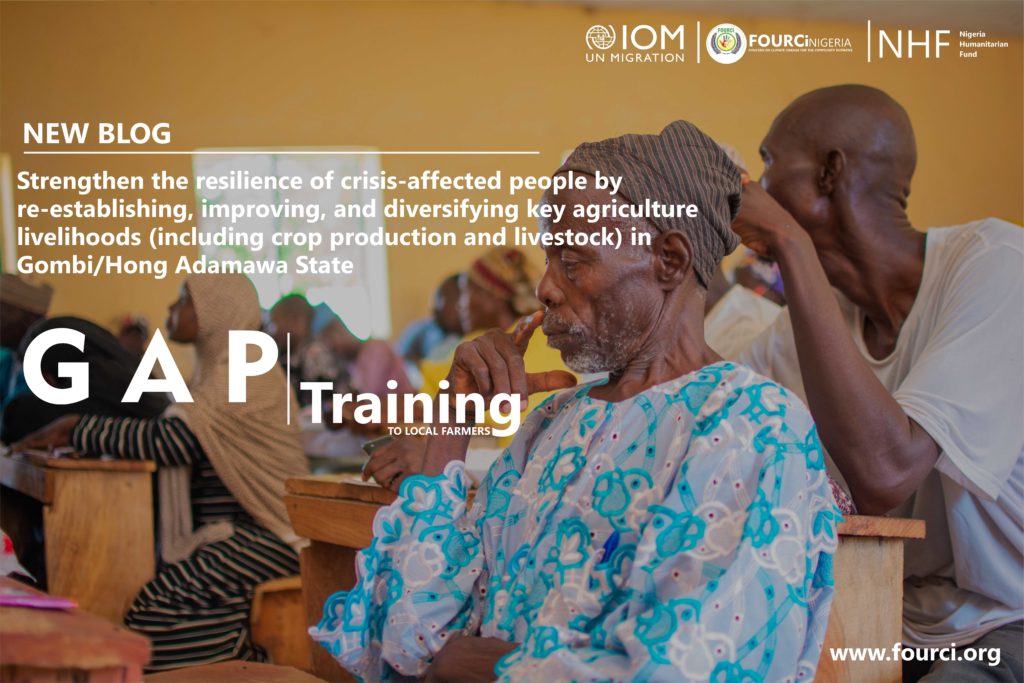To address the interconnected challenges of food security and the escalating impacts of climate change, CSA aims to enhance the resilience of populations affected by crises, by reviving, enhancing, and diversifying key agricultural livelihoods, including crop production and livestock rearing to train 80 beneficiaries to improved food quality in Hong/Gombi Local Government Areas (LGAs) of Adamawa State.
OBJECTIVES
- Strengthening the resilience of the crisis affected people through reestablishing, improving and diversifying key agriculture livelihoods in Hong and Gombi LGAs of Adamawa State
- To create Awareness and Sensitize the beneficiaries on the impact of Climate Change and medium of mitigation through Climate Smart Agriculture.
- To Educate the beneficiaries to have a broad understanding of climate Mitigation and Adaptation
- To understand Good Agricultural Practices for sustainability and development
- To strengthen the current agricultural responsiveness to climate change challenges and sustainable development in the communities
- To build a critical cadre of human resource to promote Good Agricultural Practice (GAP)
The GAP Training aims to, at the same time to achieve improved agricultural productivity through access and efficient management of water for irrigation, good agricultural practices, and climate-resilient:
Increased productivity: Produce more and better food to improve nutrition security and boost incomes, and mainly rely on agriculture for their livelihoods.
Enhanced resilience: Reduce vulnerability to drought, pests, diseases and other climate-related risks and shocks; and improve capacity to adapt and grow in the face of longer-term stresses like shortened seasons and irregular weather patterns.
Reduced emissions: Pursue lower emissions for each food produced, avoid deforestation from agriculture and identify ways to absorb carbon out of the atmosphere.

Comments are closed